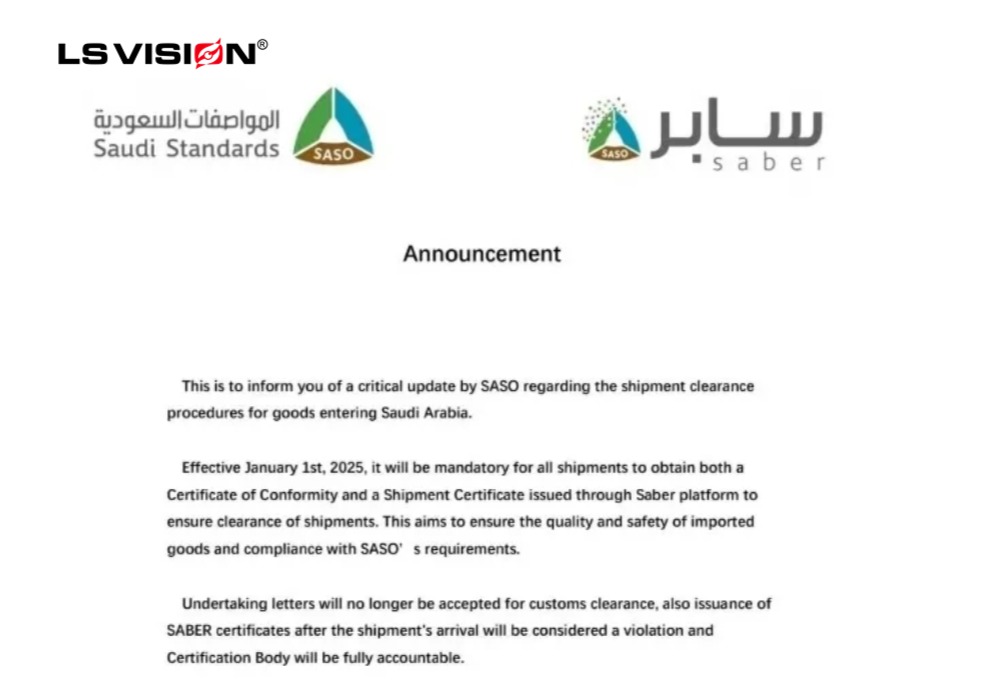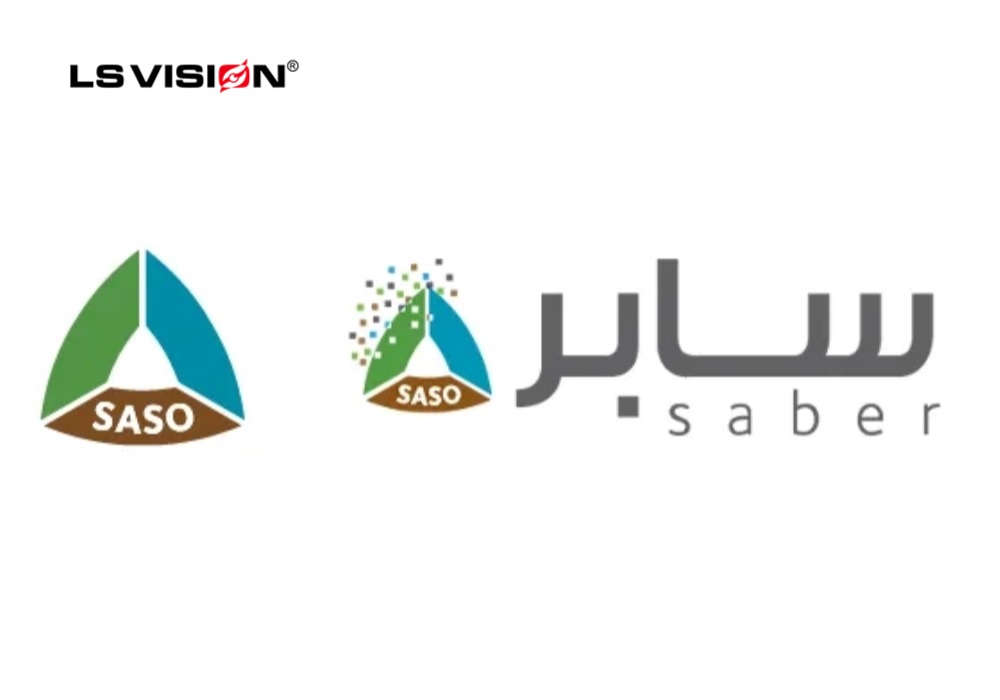Starting January 1, 2025, the Saudi Standards, Metrology and Quality Organization (SASO) will officially implement new SABER certification requirements, introducing stricter compliance standards for all goods exported to Saudi Arabia.
Key points of the new regulations:
1.Mandatory Dual Certification
All goods exported to Saudi Arabia must apply for and obtain the following certificates through the SABER system:
- PCoC (Product Conformity Certificate): Ensures the المنتج complies with Saudi technical standards.
- SCoC (Shipment Conformity Certificate): Ensures that specific batches of goods meet customs clearance requirements.
2.Undertaking Letter Invalid
The previously acceptable “Undertaking Letter” will no longer be valid for customs clearance.
3.Post-arrival Application Invalid
The new regulations clearly state that applying for an SCoC after goods arrive at the port will be considered invalid, preventing customs clearance and potentially incurring port delays and fines.

Detailed Explanation of the New Regulations:
1.What is SABER Certification?
SABER certification is a mandatory product certification system introduced by Saudi Arabia, designed to ensure that imported products meet Saudi Arabia’s regulatory requirements for quality, safety, and environmental standards. All products entering the Saudi market, whether consumer goods or machinery, must obtain SABER certification.

2.Types of SABER Certification Certificates:
SABER certification involves two stages, requiring two certificates:
1.PCoC (Product Conformity Certificate):
- Purpose:Ensures that products comply with Saudi technical regulations and standards, serving as a prerequisite for market entry in Saudi Arabia.
- Validity:Usually valid for one year and can be reused during that period.
- Application Process:
- Submit product manuals, test reports, proof of manufacturer qualifications, and other related documents.
- The application must be reviewed and approved by an SASO-recognized certification body.
💡 Tip:Prepare relevant documents in advance to avoid delays due to lengthy review times. It’s recommended to apply at least 30 days before shipment.
2.SCoC (Shipment Conformity Certificate):
- Purpose:Ensures that each batch of goods aligns with the PCoC, and is a necessary condition for customs clearance.
- Validity:Only valid for the specific shipment and must be applied for separately for each export.
- Application Process:
- Prior to shipment, the importer submits an application through the SABER system.
- The system verifies the validity of the PCoC, after which the certification fee is paid, and the certificate is issued online.
💡 Tip:The SCoC is only used for customs clearance once and must be issued no later than 15 days before the shipment date to avoid any issues.
3.Process for Applying for the SABER-SC Certificate:
The process for applying for the SABER-SC certificate generally includes the following steps:
- Importer’s Application:The importer submits the application for the SC certificate before shipment through the SABER system.
- Verification of PCoC Validity:The SABER system checks the validity of the corresponding PCoC certificate for the batch of goods to ensure compliance.
- Payment of Certification Fees:The importer pays the certification fee for the SC certificate.
- Issuance of SC Certificate:After review, the SABER system issues the SC certificate online.















